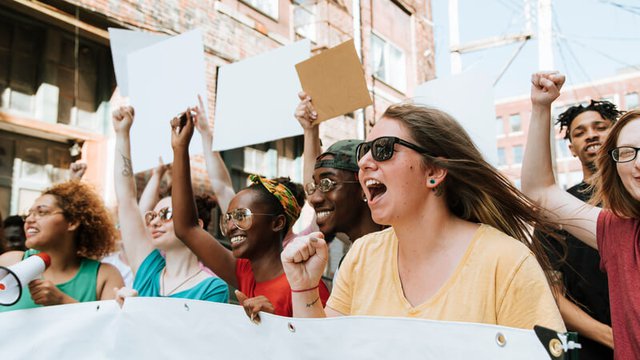
In December 1948, in the aftermath of World War II which had ended just a few years earlier, the United Nations Organisation published the Universal Declaration of Human Rights, probably one of the most important documents in history because it became a worldwide reference. The 30 Human Rights of the UN have served as a guide for countries to advance in the proclamation and protection of civil, political, economic and social rights, inspiring everything from the European Social Charter to the International Covenant on Civil and Political Rights.
In this post, we will look at the role human rights in more detail, what they are for, and why they are necessary. And if you are interested in a career in politics or in their area of work, you should consider the Degree in International Relations Valencia or the Degree in International Relations in Madrid at Universidad Europea.
Human rights are inherent to all people, regardless of nationality, origin, place of residence, gender, ethnicity, skin colour, religion, language or any other condition. Its main objective is to guarantee the basic conditions that favour the integral development of each person while protecting human dignity.
They are an important means of protection for all of us, especially for those who may face abuse, neglect, and isolation. More importantly, these rights give us power and allow us to speak up and challenge mistreatment by a public authority.
Universal Human Rights are usually included in the national legal order and international law, so that states are responsible for creating laws and measures that guarantee their compliance at the individual and group level.
The values of tolerance, equality and respect can help reduce differences within society. Putting human rights ideas into practice can help us create the society in which we want to live.
In recent decades, there has been tremendous growth in the way we think about and apply the ideas of human rights. This has had many positive results: knowledge about human rights can empower people and offer solutions to specific problems.
Human rights are an important part of how people interact with other people in all aspects of society: in the family, community, schools, workplace, politics and international relations. Therefore, it is essential that everyone strive to understand what human rights are because it is easier for them to promote justice and the well-being of society.
It is worth clarifying that human rights include both rights and obligations. International law dictates that states are responsible for respecting, protecting and applying human rights. Therefore, the state must not only protect individuals and groups from abuses and violations of their rights but must also promote laws that ensure the progress of human rights.
The UN created 30 Human Rights in its Universal Declaration that each person, group, organisation or State must respect:
You cannot take away a person's human rights. In its final article, the Universal Declaration of Human Rights establishes that no State, group or person '[has] any right to participate in any activity or carry out any act aimed at the destruction of any of the rights and freedoms established herein.'
This does not mean that abuses and violations of human rights do not occur. On TV and in the newspapers every day we hear tragic stories of murder, violence, racism, hunger, unemployment, poverty, abuse, homelessness, and discrimination.
However, the Universal Declaration and other human rights treaties are more than lofty aspirations. They are essential legal principles. To comply with their international human rights obligations, many nations have incorporated these principles into their own laws. This gives people the opportunity to settle a complaint in a court in their own country.